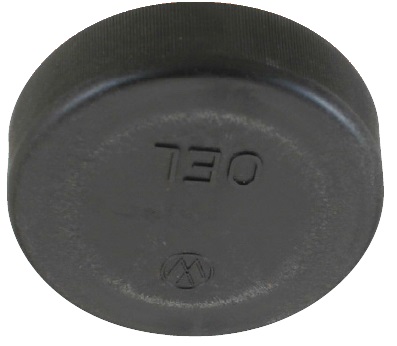Dr. Loof Lirpa’s Revolutionary New Oil
Evan Zabawski | TLT From the Editor April 2014
A sense of humor is a good thing.

Oddly enough, German cars do actually require 730 oil.
www.canstockphoto.com
“DID YOU HEAR ABOUT THE NEW OIL PUT OUT BY…” is a sentence that will not end well when spoken on April 1 or, for that matter, when spoken any time of year to someone new to the industry. Let’s face it, we all enjoy some gentle ribbing, but sometimes the prankster won’t own up to the ruse.
One of the most popular setups I have heard was likely started by a mechanic when speaking to an apprentice. The innocuous request is for the apprentice to fetch “710 oil.” After rummaging through the inventory of oils in the shop and returning empty handed, the apprentice will likely break down and admit defeat. At that point, the mechanic will implore it must be found because the filler cap clearly states the correct name for the required oil.
The prank becomes a
fait accompli when the apprentices checks the cap and realizes that 710 is merely OIL when viewed upside down. Oddly enough, German cars do actually require 730 oil. Don’t believe me? Just check the cap. By the way, did you know the German word for oil is OEL?
I almost had you there. The folks over at Honda Motorcycles who assign part numbers definitely have a sense of humor. For the past 30 years, the part number for the relatively universal oil filler cap, which is embossed OIL, remains 15611-KA4-710 (actually true).
A less common setup, which can only be pulled off once a year, is to invoke chemist Dr. Loof Lirpa’s name in conjunction with some extravagant new development from a major chemical, additive or oil company. I can admit my high school chemistry teacher got most of my class with this one, but I still hear it occasionally all these years later. Loof Lirpa is not a real person, just April Fool spelled backwards.
The line between fact and fiction can be crossed by those pushing aftermarket additive products. Many of us have been to a trade show where someone will demonstrate the “lubricity” of commonly used engine oils by using an apparatus that attempts to stop a rotating spindle by using a lever to push a small block of steel against it. The engine oil is applied to the spindle and some small amount of weight is hung from the end of the lever, thus pressing the block against the spindle, which quickly stops. The next step is to apply some of the additive, whereby the spindle remains spinning despite significant addition of weight.
The fact is that the test rig is real (conforms to ASTM D2509 and D2782); it evaluates the load-carrying capacity of extreme-pressure (EP) lubricants. The fiction comes from the fact that no engine oil will have, nor require, significant EP properties, but the additive obviously does. By describing the demonstration as a lubricity evaluation, the viewer is lured into a very real but misleading setup. The jig is up, so to speak, if an honest and educated or experienced individual calls out the demonstrator.
This is a luxury not afforded to the average shopper in the oil section of an automotive parts store with another staged lubricity demonstration. The mini test rig involves two baths of oil, each with a series of interconnected plastic gears arranged vertically. Turning the crank on each of the bottom gears yields only one or two oil-wetted gears in the plain oil bath but a veritable reverse-waterfall in the additized oil bath. Without a human demonstrator, nobody can challenge that the property being demonstrated has more to do with tackiness (again, not required in engine oils) or that the additized oil bath ends up with significant air entrainment (undesirable in any lubricated application).
It can be a lot of fun to joke with our colleagues but only when done good naturedly. It is unacceptable to perpetrate a deception publicly, especially if it has the potential of harming the very asset it promises to protect.
 Evan Zabawski, CLS, is the senior reliability specialist for Fluid Life in Edmonton, Alberta, Canada. You can reach him at evan.zabawski@fluidlife.com
Evan Zabawski, CLS, is the senior reliability specialist for Fluid Life in Edmonton, Alberta, Canada. You can reach him at evan.zabawski@fluidlife.com.